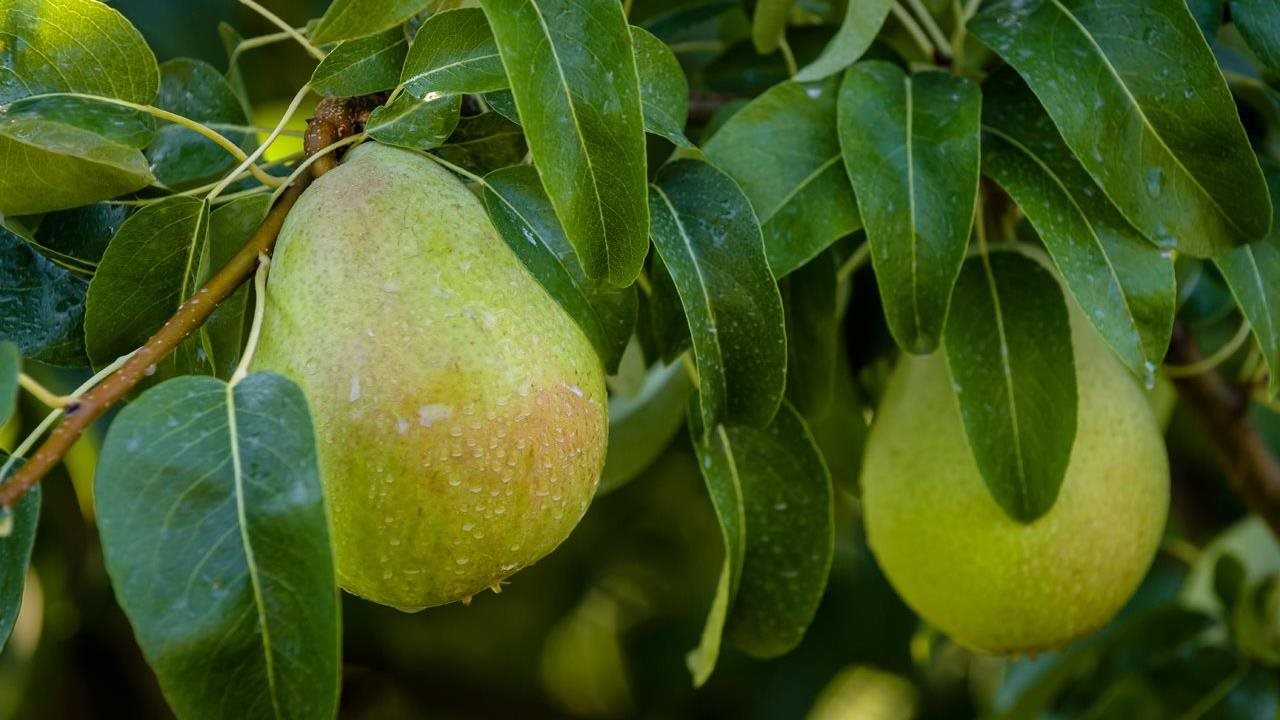
(BPT) – The fall harvest is underway, which means that a fresh new crop of USA-grown pears is coming to grocers’ produce sections. For those looking for a healthy snack with staying power, pears are a natural go-to. Not only are they available fresh almost year-round, but they contain a significant amount of dietary fiber, helping bellies feel full longer while supporting gut health and overall wellness.
Fiber is an essential component of any nutritious diet, and just one medium pear contains 6 grams of dietary fiber, or 21% of the recommended daily value. Fiber is essential to maintaining bowel regularity and gut health, as it helps to absorb water and remove waste and toxins as it travels through the digestive system. But it does much more.
Here are five reasons why adding pears to the diet — whether as a daily snack or as part of a meal — can help meet dietary requirements and keep things moving in the right direction.
Fiber in pears keeps constipation at bay
Pears contain soluble and insoluble fiber, both of which have important functions when it comes to maintaining bowel regularity. Soluble fiber absorbs water and softens stool, while insoluble fiber adds bulk to stool to make it easier to pass. Adopting a high-fiber diet can help avoid constipation, which is often accompanied by discomfort, and can help keep bowel movements regular.
Fiber in pears reduces risk of developing certain painful conditions
Beyond regularity, fiber may promote bowel health by lowering the risk of developing painful conditions like hemorrhoids and diverticulitis, small pouches that appear in the colon that could tear and result in inflammation or infection. Fiber is also suspected to play a role in reducing the risk of colon cancer. In pears, the majority of fiber is contained in the skin, so it’s recommended to leave the skin on for the full nutritive benefits and for added flavor and texture.
Fiber in pears could support gut health
Pears also contain a type of fiber called prebiotic fiber. According to the Mayo Clinic, prebiotic fiber acts “as a food for human microflora.” Prebiotic fiber is thought to help improve the balance of naturally occurring, beneficial microorganisms in the gut. By helping good bacteria flourish, it suppresses the bad and creates a better digestive health environment.
Fiber in pears promotes healthy weight
Foods that are high in fiber tend to have bulk that contributes to making them more filling to eat than low-fiber foods. And, high-fiber foods like pears are not as “energy dense” as other foods, such as processed foods, so they contain fewer calories for the same volume. Such qualities help stomachs feel satisfied longer and reduce the urge to keep eating.
Fiber in pears may aid in managing blood sugar levels
Fiber, specifically soluble fiber, is an important aid for people with diabetes, as it can help slow how quickly the body absorbs sugar and help manage blood sugar levels. For those who are seeking to avoid developing Type 2 diabetes, including insoluble fiber in their daily diet is one way to reduce their risks. As an aside, pears have another secret weapon in controlling blood sugar: a low glycemic index. As a low GI fruit, pears release glucose gradually and evenly, helping to keep blood sugar levels steady.
Adding foods that contain fiber to daily diets is as easy as picking up fresh pears at the market. Flavorful, versatile and readily available, pears can give health and wellness a boost at snack time, dinnertime or anytime. For recipes and inspiration, visit usapears.org.
